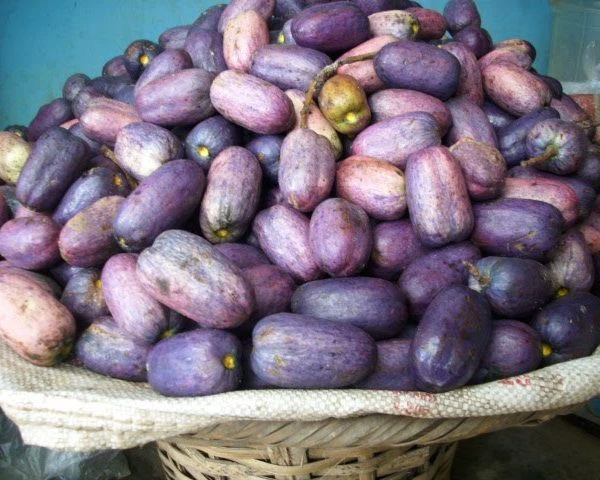Pear: Diabetes is a chronic condition that affects millions of people worldwide.
It is characterized by the body’s inability to regulate blood sugar levels properly.
When it comes to managing diabetes, diet plays a crucial role. According to WebMD.
People with diabetes often need to be mindful of the types of foods they consume to maintain stable blood sugar levels.
One fruit that has gained attention for its potential benefits in diabetes management is the African pear.
The African pear, also known as Dacryodes edulis or African oil bean, is a fruit native to West Africa.
It is commonly found in countries like Nigeria, Cameroon, and Ghana. The fruit is green when unripe and turns yellow or orange when fully ripe.
The flesh is creamy, with a buttery texture and a slightly sweet taste.
Now, the big question is, can people who suffer from diabetes safely consume African pear? The answer is yes, but with caution.
While African pear can be included in a diabetic diet, portion control and overall carbohydrate intake need to be considered.
The glycemic index (GI) is a measure of how quickly a particular food raises blood sugar levels. Foods with a high GI are rapidly digested and cause a sharp increase in blood glucose levels.
On the other hand, foods with a low GI are digested slowly and lead to a gradual rise in blood sugar.
The GI of African pear is relatively low, which means it has a minimal impact on blood glucose levels.
This is beneficial for people with diabetes as it helps prevent sudden spikes in blood sugar.
Furthermore, African pear is a good source of dietary fiber. Fiber is an essential nutrient for individuals with diabetes as it aids in blood sugar management.
It slows down the absorption of glucose, preventing rapid fluctuations in blood sugar levels. Fiber also promotes a feeling of fullness, which can be beneficial for weight management, another important aspect of diabetes control.
Additionally, African pear contains various vitamins and minerals, including vitamin C, vitamin E, potassium, and magnesium.
These nutrients contribute to overall health and well-being, and they can support individuals with diabetes by promoting better blood sugar control.
Despite the potential benefits, it’s crucial for people with diabetes to exercise portion control when consuming African pear.
While the fruit itself may not significantly raise blood sugar levels, consuming large quantities can still affect overall carbohydrate intake.
A dietitian or healthcare professional can provide personalized guidance on portion sizes and meal planning to incorporate African pear effectively into a diabetic diet.
It’s important to note that managing diabetes requires a comprehensive approach, and diet is just one aspect of it. Regular monitoring of blood sugar levels, physical activity, and medication (if prescribed) are other essential components of diabetes management.
Therefore, individuals with diabetes should consult their healthcare team for personalized advice on incorporating African pear or any other food into their diet.
African pear can be a part of a healthy diet for individuals with diabetes. Its low glycemic index, high fiber content, and essential nutrients make it a potentially beneficial fruit for blood sugar control.
However, portion control and overall carbohydrate intake must be considered. As always, it is essential to work with healthcare professionals to develop a well-rounded diabetes management plan tailored to individual needs.
Thanks for reading.


